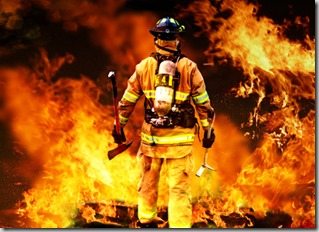Fire Safety During Winter
As the weather gets colder, the days shorter and the nights darker we find ourselves turning up the heat to keep warm over the winter months. According to reports Britain is braced for one of the worst winters in decades. Forecasters have warned that the entire country is set for a horror freeze which will bring with it brutal winds and fierce blizzards.
Before you all reach for the thermostat, start up the log fire or dig the portable heaters and electric blankets out of storage, there are a few things you should be thinking about in order to protect yourself and your family from the threat of fires within your home this winter:
Open fires
· Keep chimneys and flues clean and well maintained; it is best practice to thoroughly clean your fire place and chimney area during autumn time, before the first fire of the year
· Only burn suitable fuels and never overload the fire place
· Be careful when using open fires to keep warm – always use a British Standard-approved fire guard to protect against escaping hot embers and sparks
· Make sure that embers are extinguished before leaving the room unattended for long periods of time or before going to bed
· Never store firewood close to a fire place or stove in case of accidental ignition via radiated heat
· Never empty ashes into a plastic bag, cardboard box or similar vessel
· Similarly, ensure never to transfer hot ashes into a plastic wheelie bin
Portable heaters
· Choose a heating appliance that meets the British Safety Standard and ensure that it is kept clean and well maintained
· Always keep heaters away from curtains and furnishings; in no circumstances should portable heaters be covered or used to dry clothes
· Always ensure you turn off and unplug electric heaters when they are left unattended for long periods of time, when leaving the house and before going to bed
· Heaters should always be positioned with their backs against the wall and if possible, secured against the wall to prevent them from falling over
Electric blankets
· When buying an electric blanket ensure that it has ‘overheat protection’ and carries the British Electrotechnical Approvals Board (BEAB) symbol
· Always unplug blankets before you go to bed unless they have a thermostat control ensuring their safety for overnight use, although it is advisable to turn them off
· Under no circumstances should a hot water bottle be used in the same bed as an electric blanket
· Check regularly for wear and tear of your blanket. It is advised you have them checked over by an expert once every three years and they should be replaced after ten years
· Keep electric blankets flat or rolled up when in storage, as folding them will damage internal wiring
Candles
· Take special care when using candles; they should not be left unattended at any time so ensure they are extinguished when you leave a room and before you go to bed
· It is best practice to use a snuffer or a teaspoon rather than simply blowing candles out as that could result in sparks flying and nearby items catching alight
· Ensure candles are stood upright in a secure holder on a heat-proof surface and ensure you extinguish them before they burn right down into the holder
· Always stand candles away from materials that may catch fire such as curtains, clothing and bedding
· Remember to take extra care where children and pets are concerned; store candles out of the way so that they don’t get accidentally knocked over
The winter season is a very busy period for fire services, which experience a sharp rise in the number of calls to domestic fires; in particular chimney breast fires and those involving candles. Directgov UK reports that in England alone there are nearly 8,000 chimney fires every year. The final (and possibly most vital) piece of fire safety; advice for any home is to ensure that at least one smoke alarm is installed on every level of your house. Smoke alarms that are properly maintained play a vital role in reducing fire-related deaths and injuries.
So take a moment and to consider the safety of your home this year. By implementing a few simple precautions could make all the difference to yours and your family’s safety this winter.



Do you have any thoughts? Please share them below